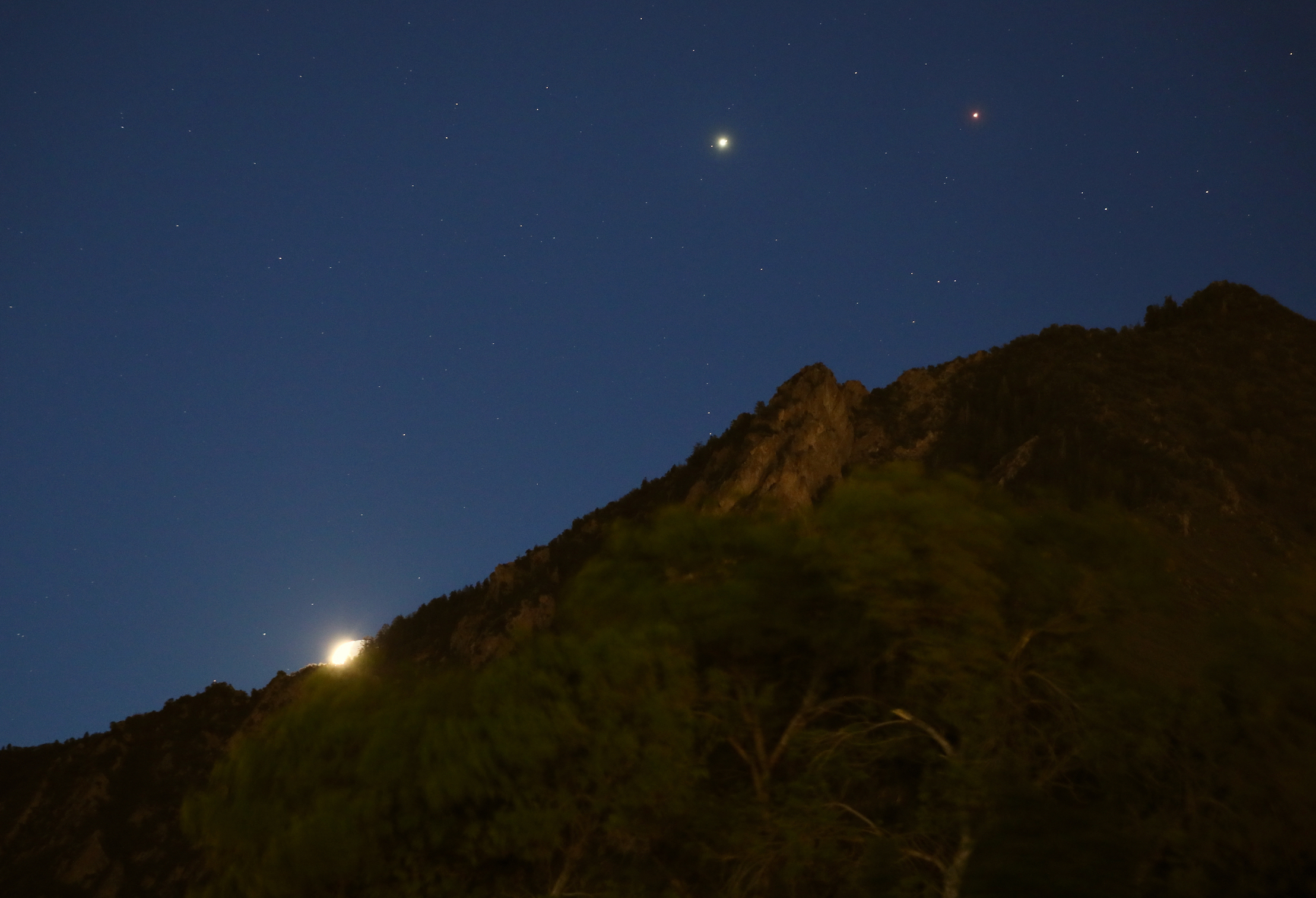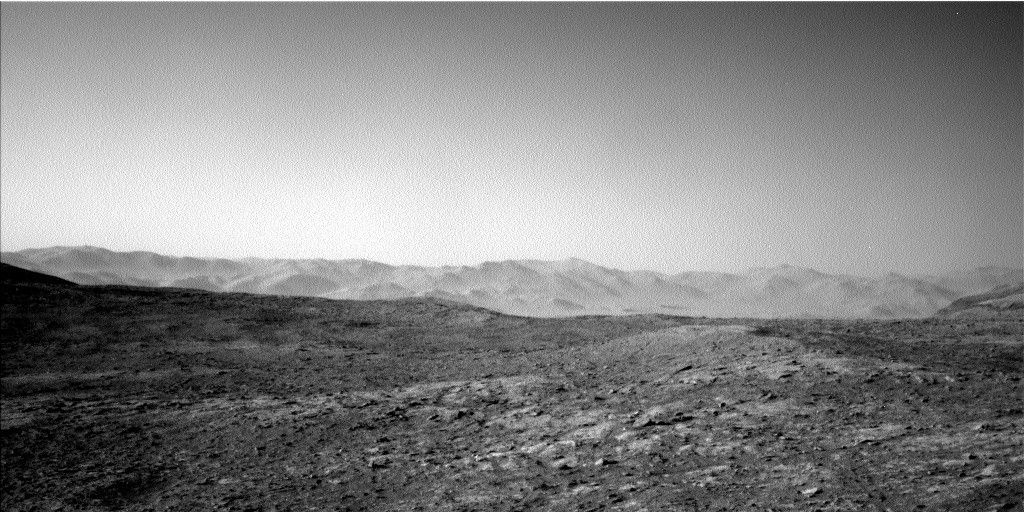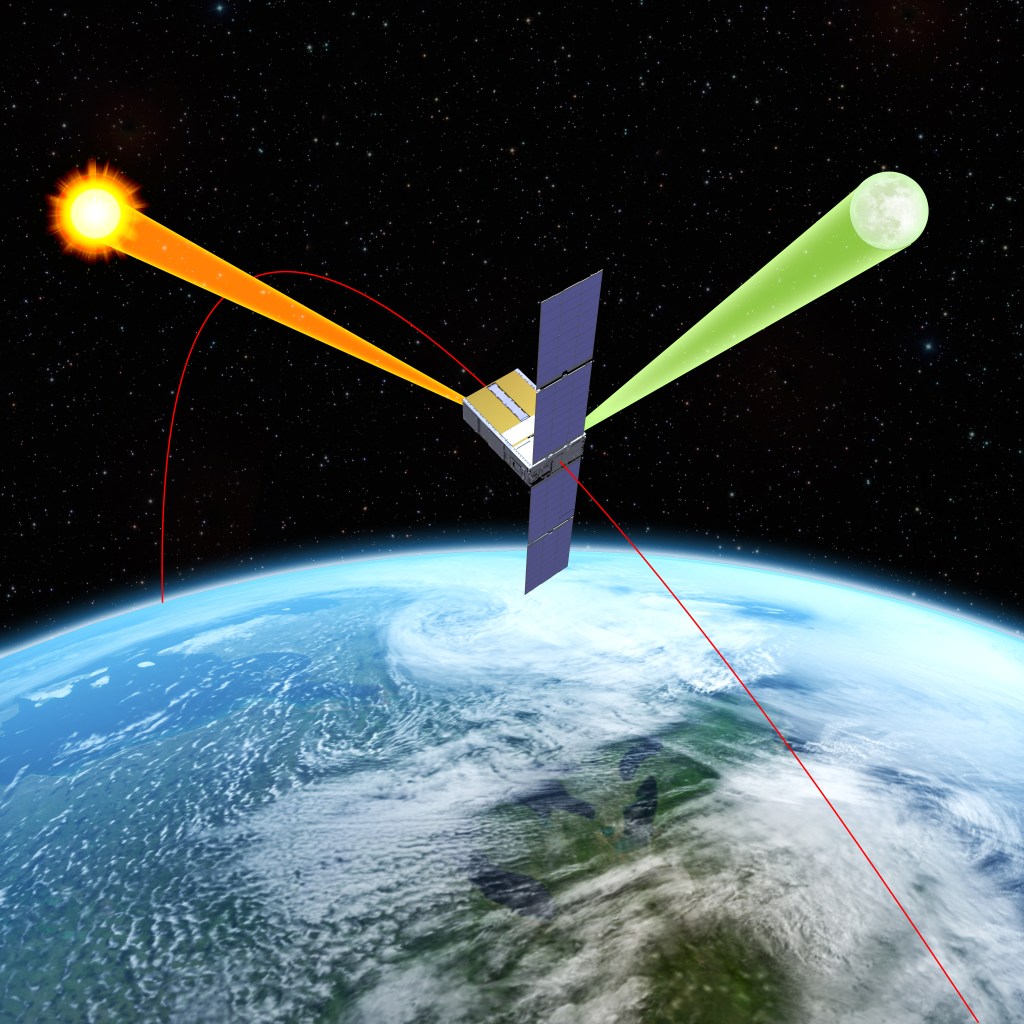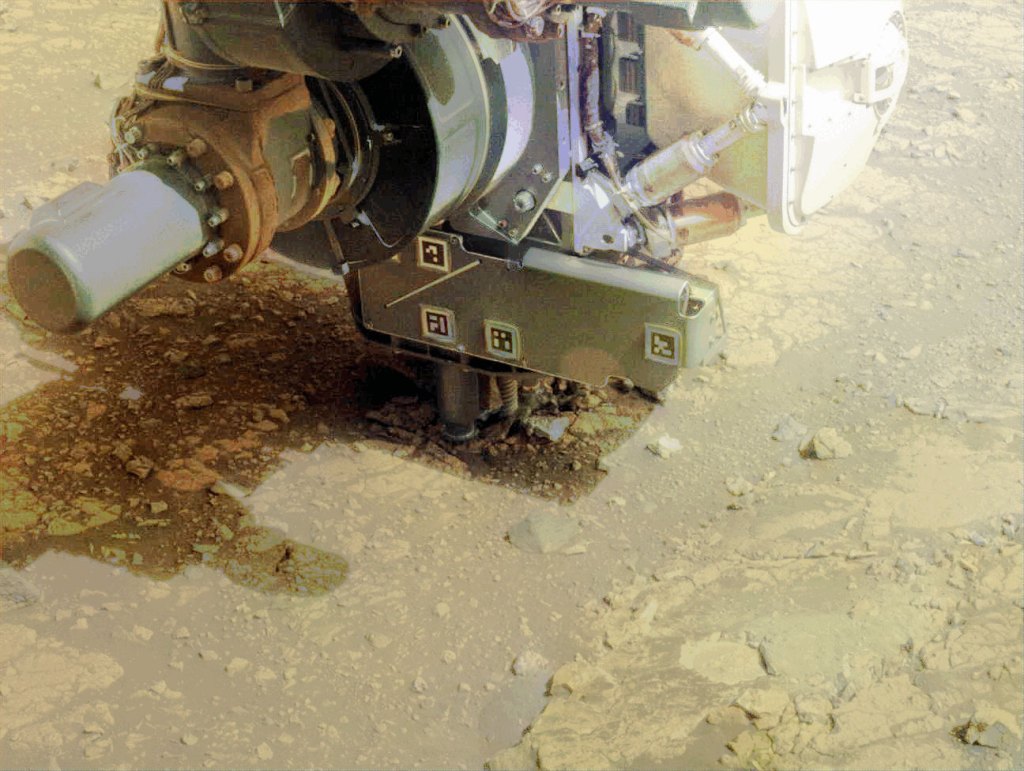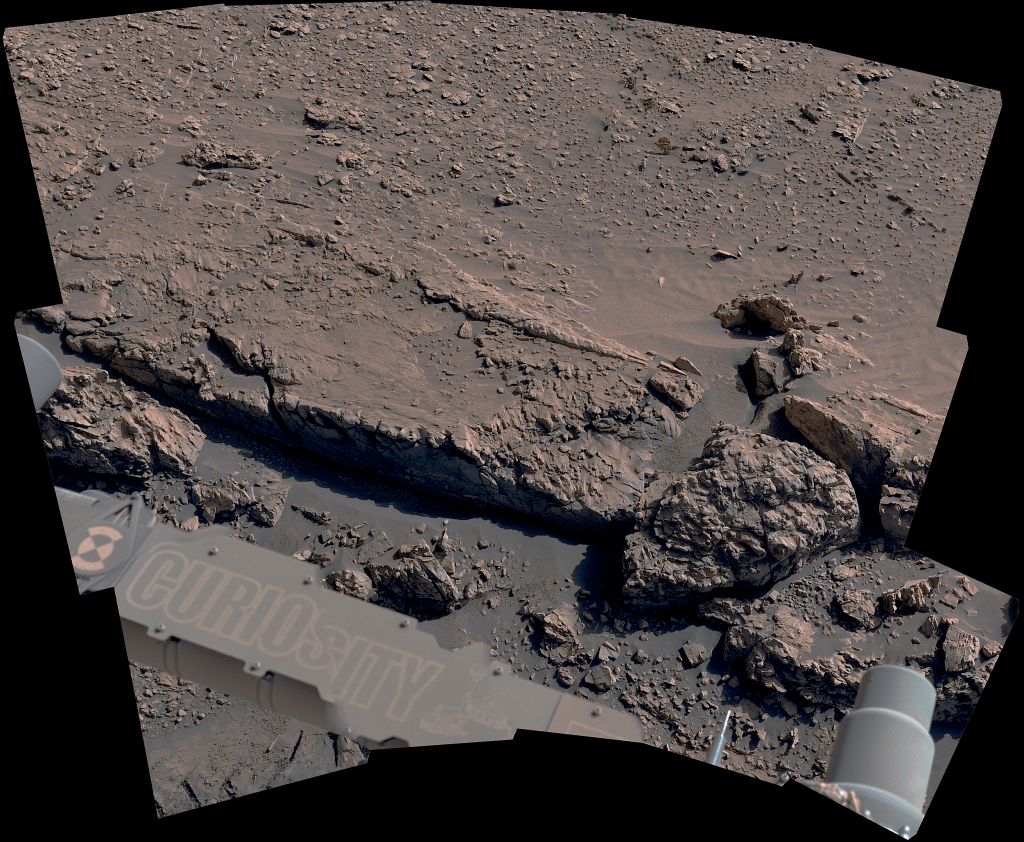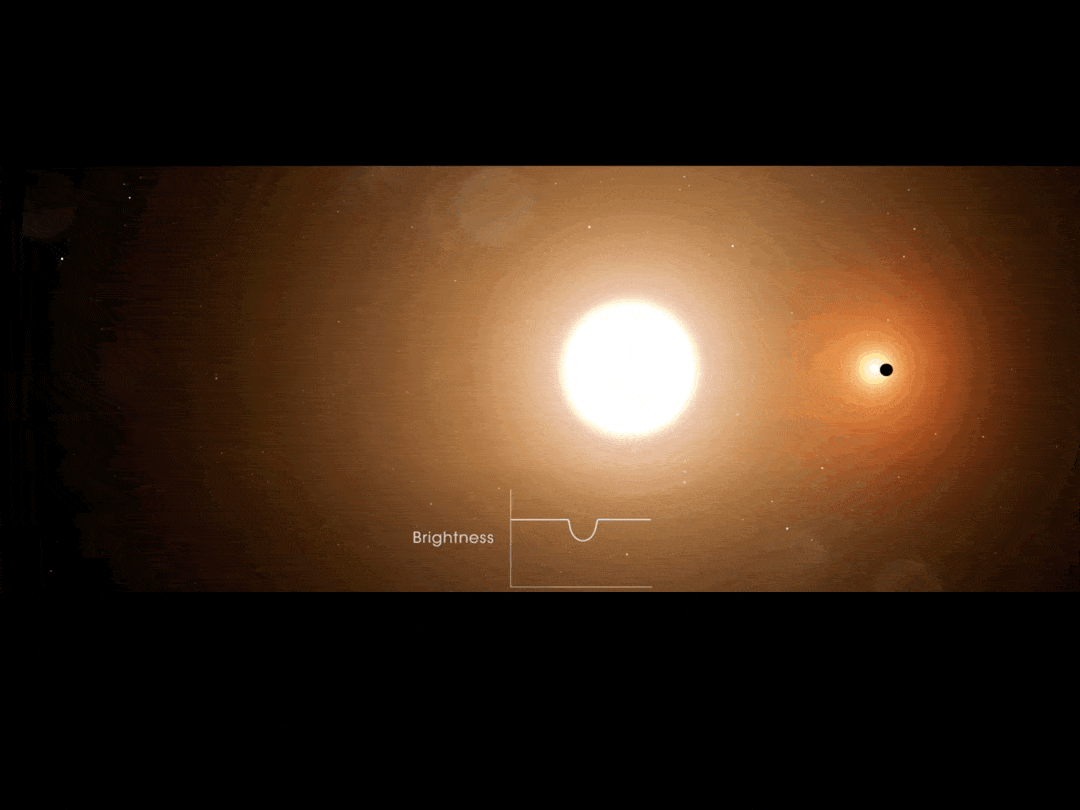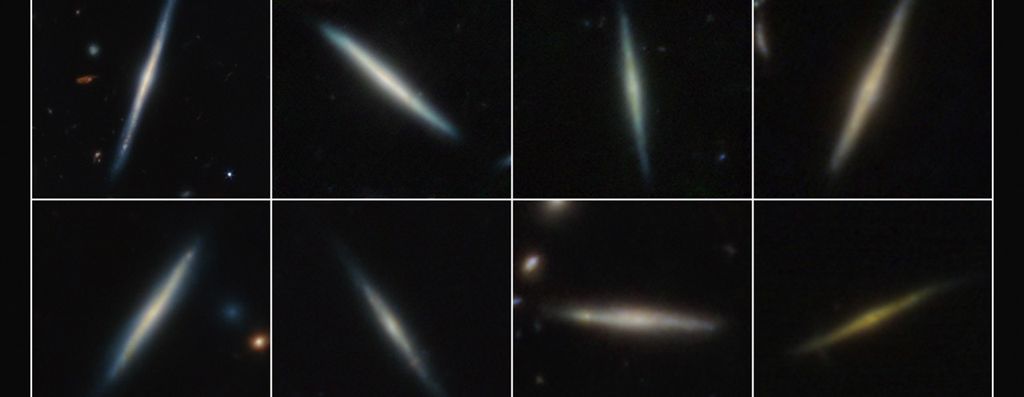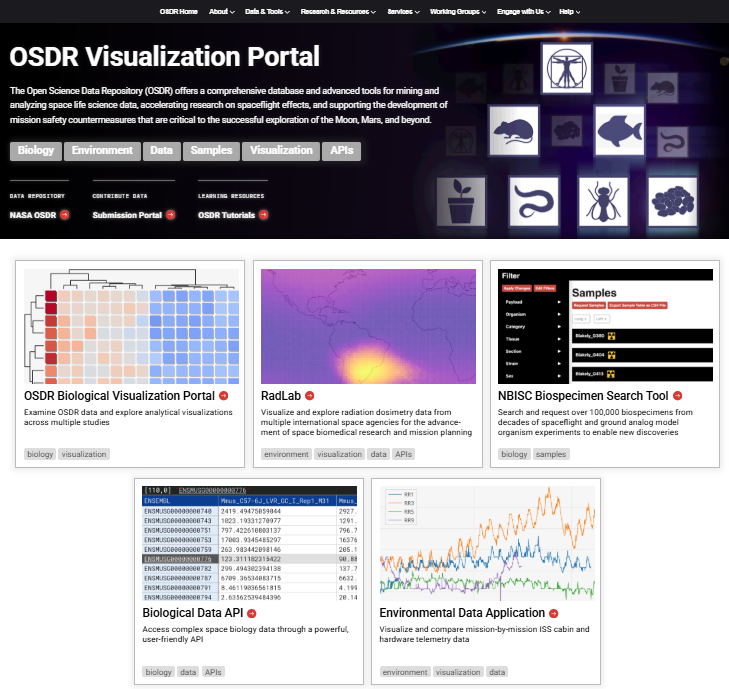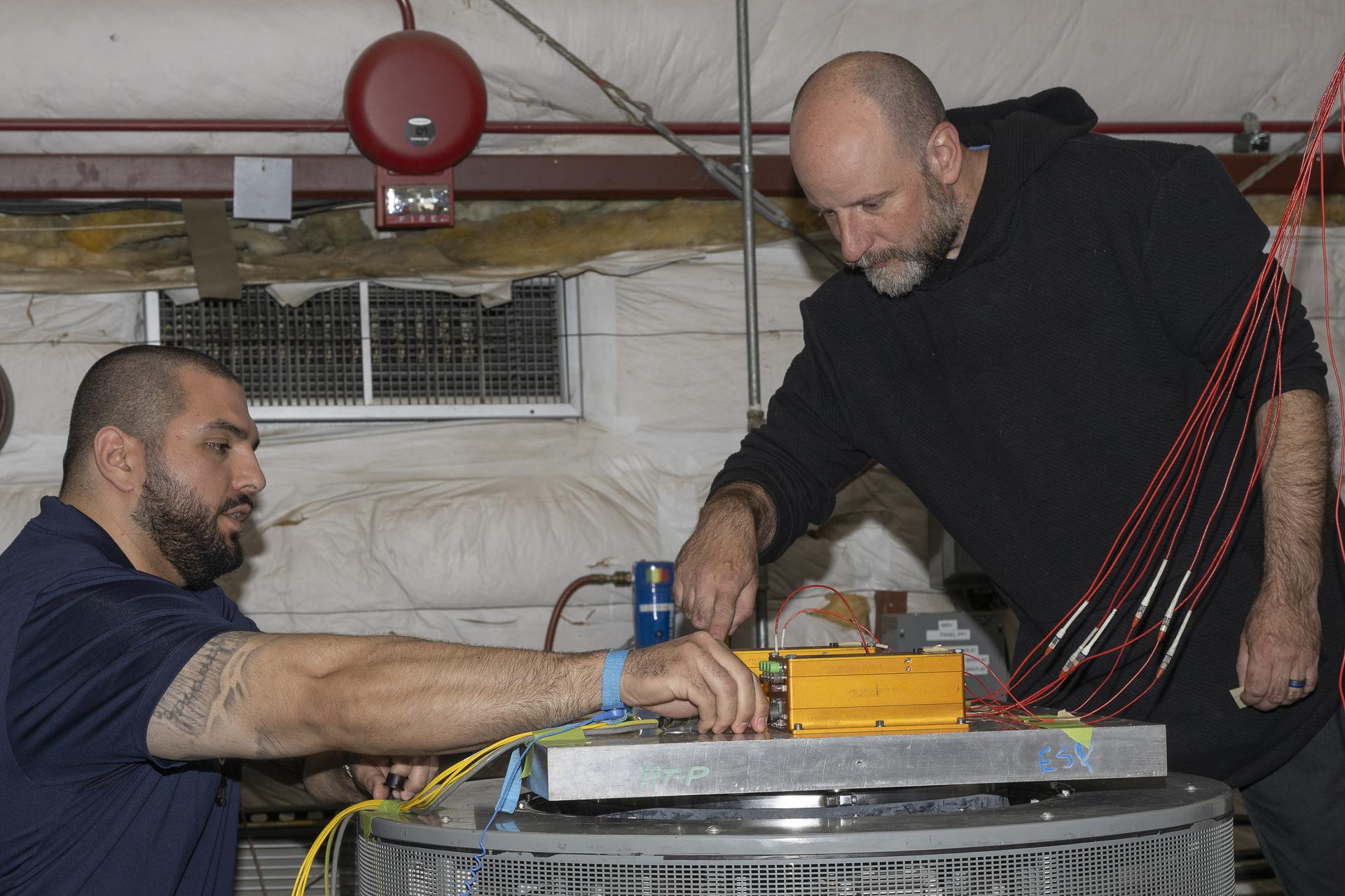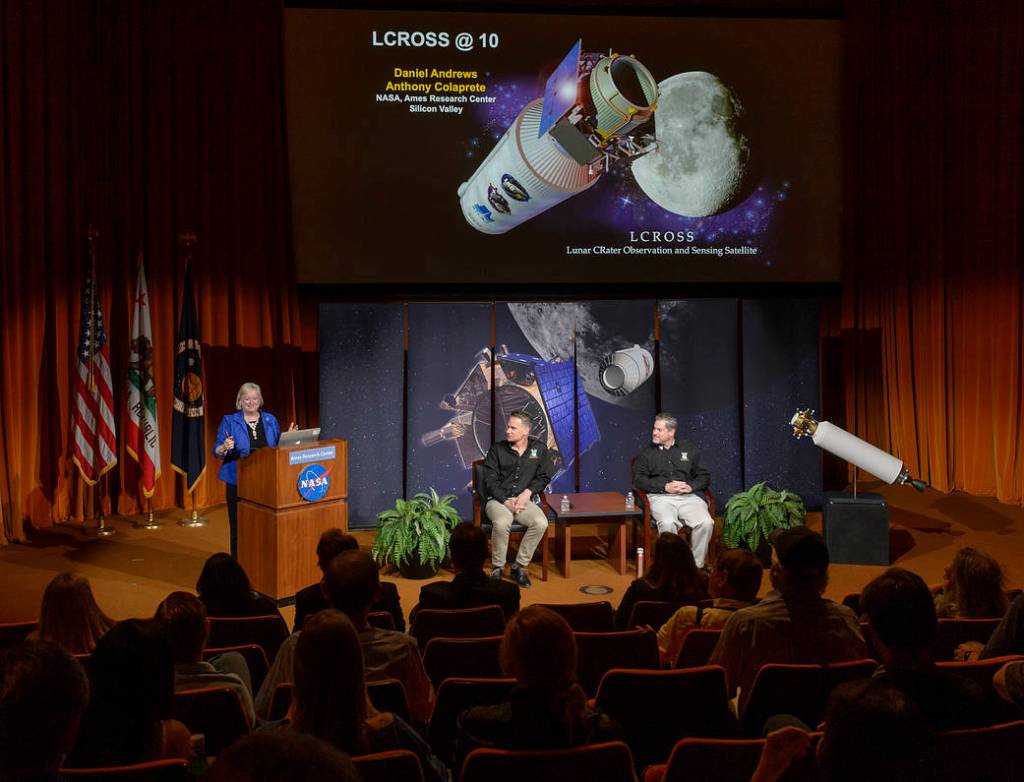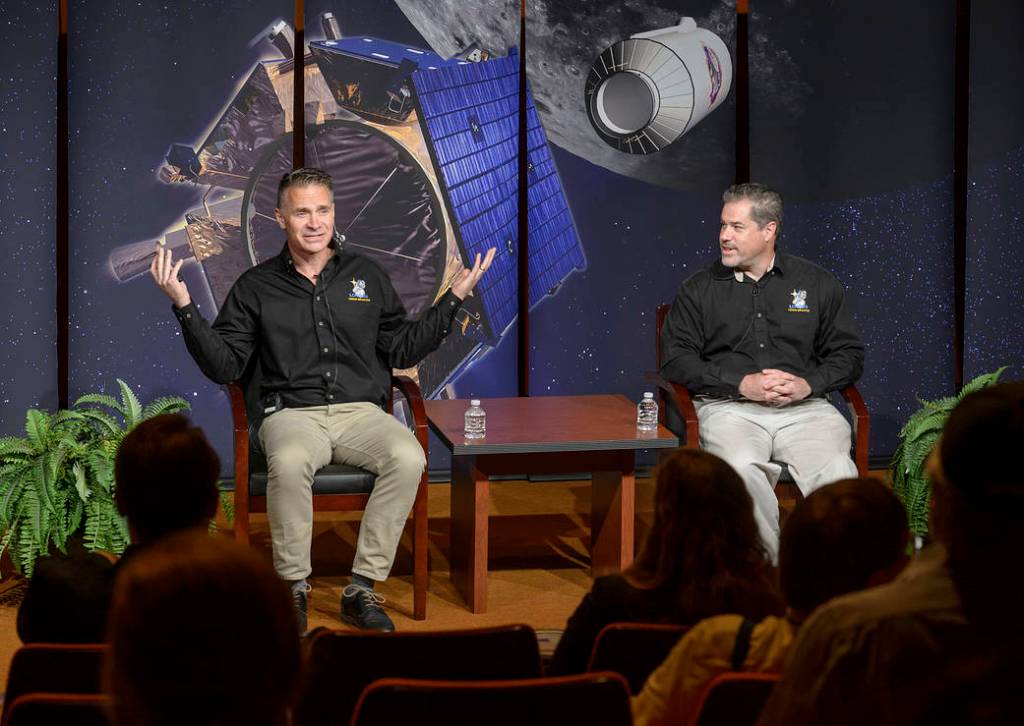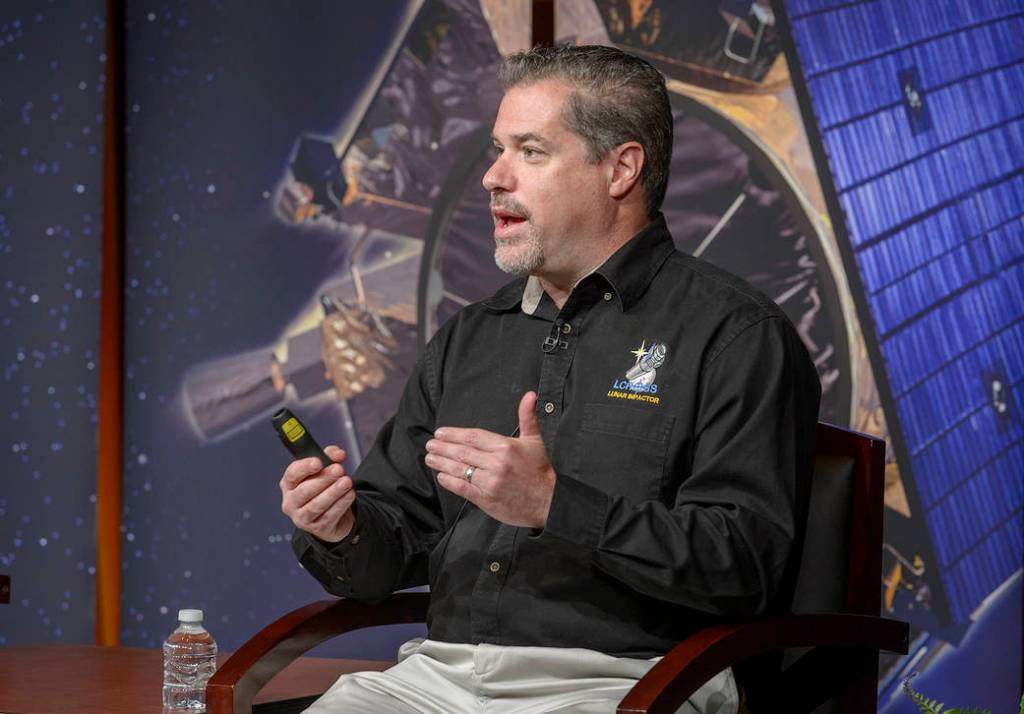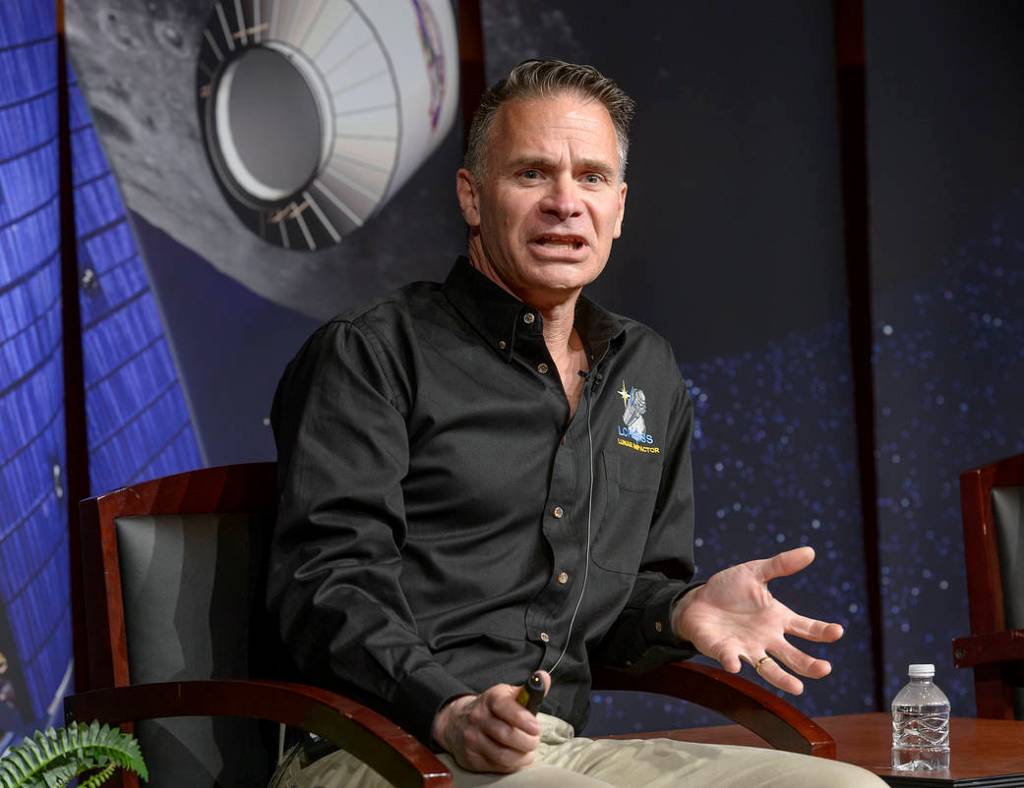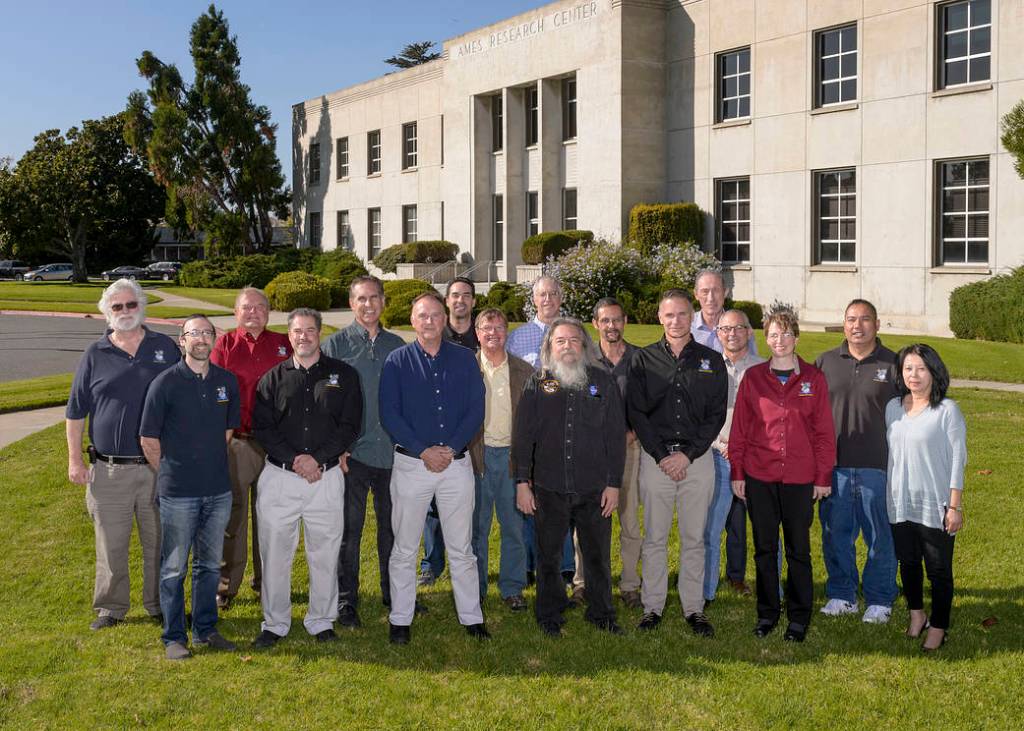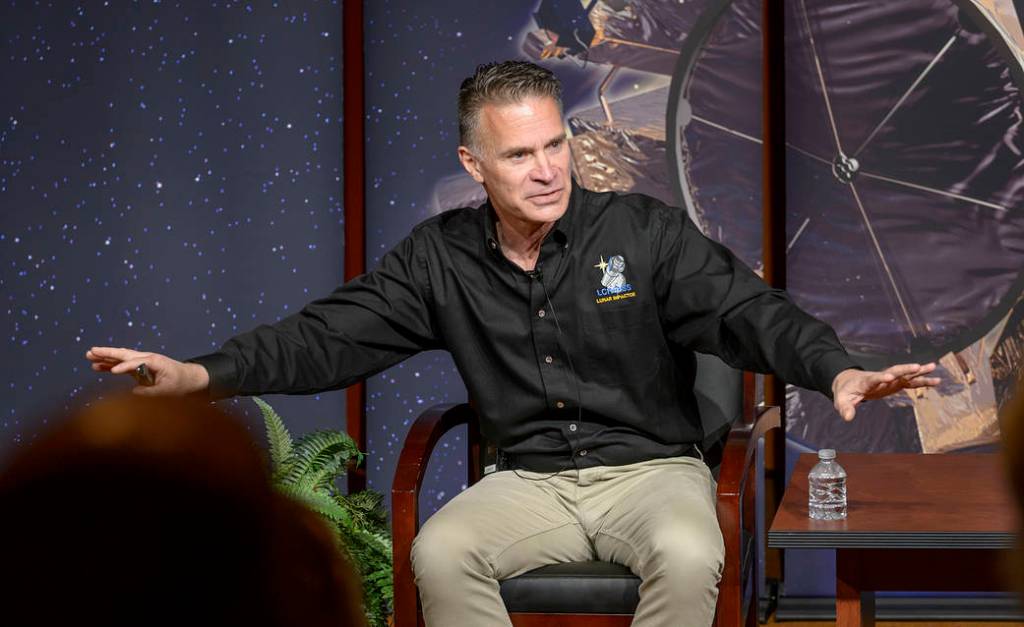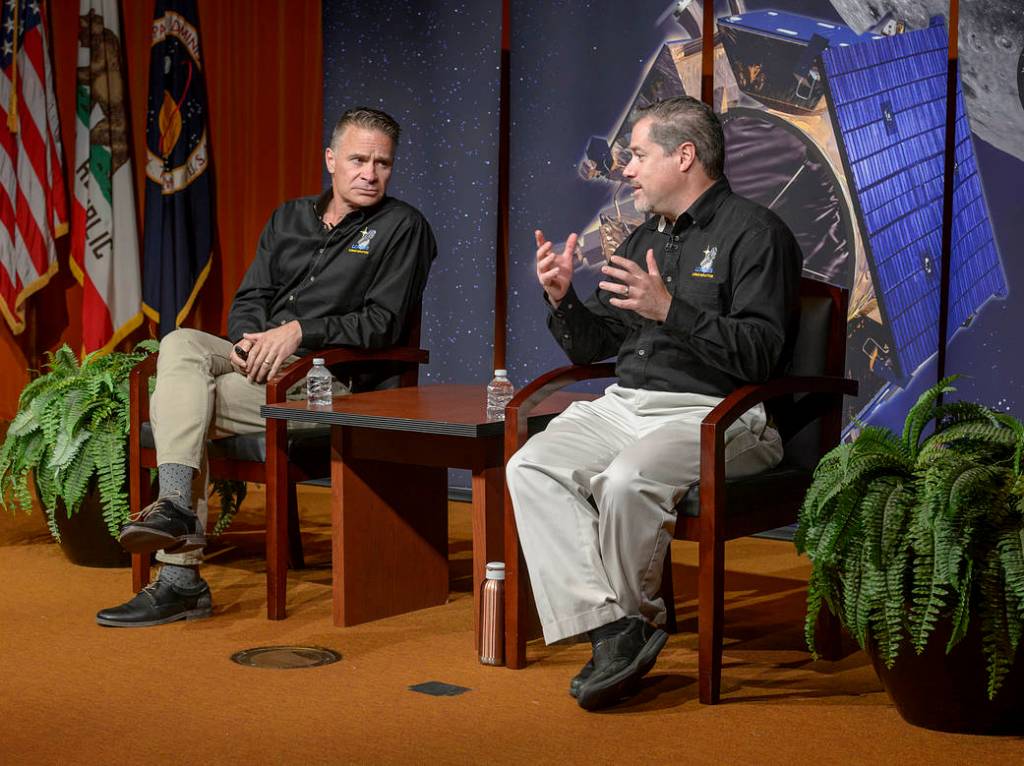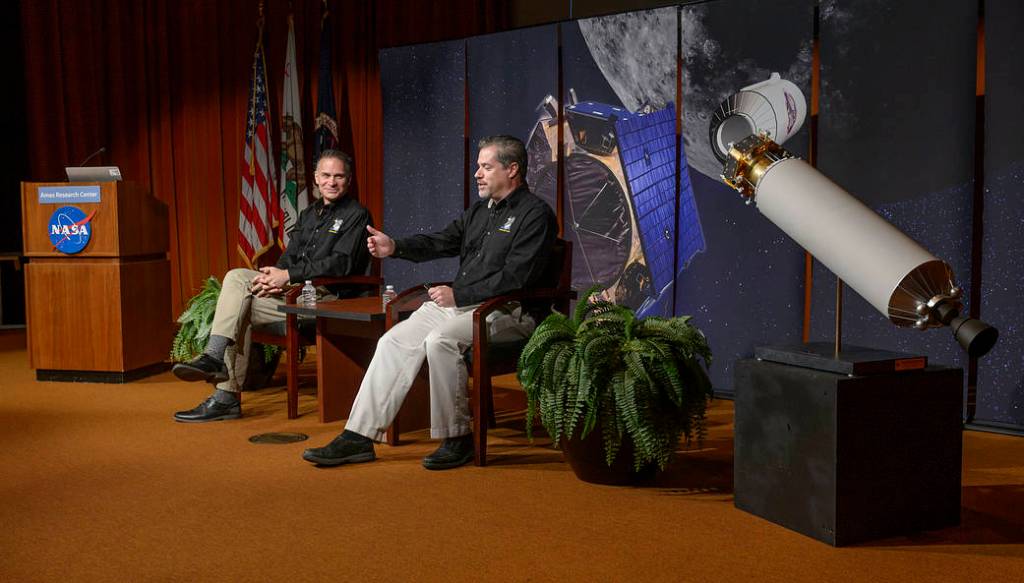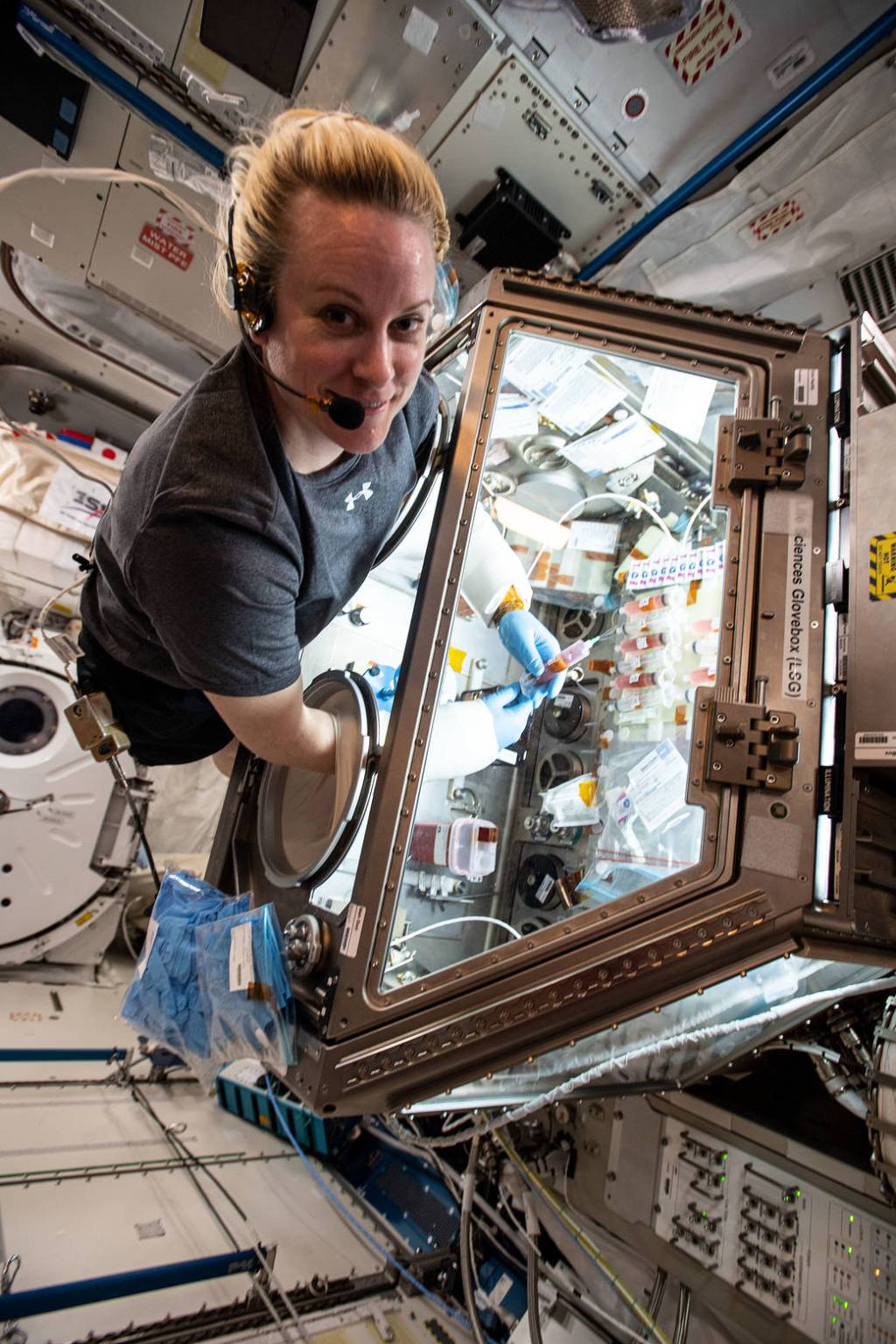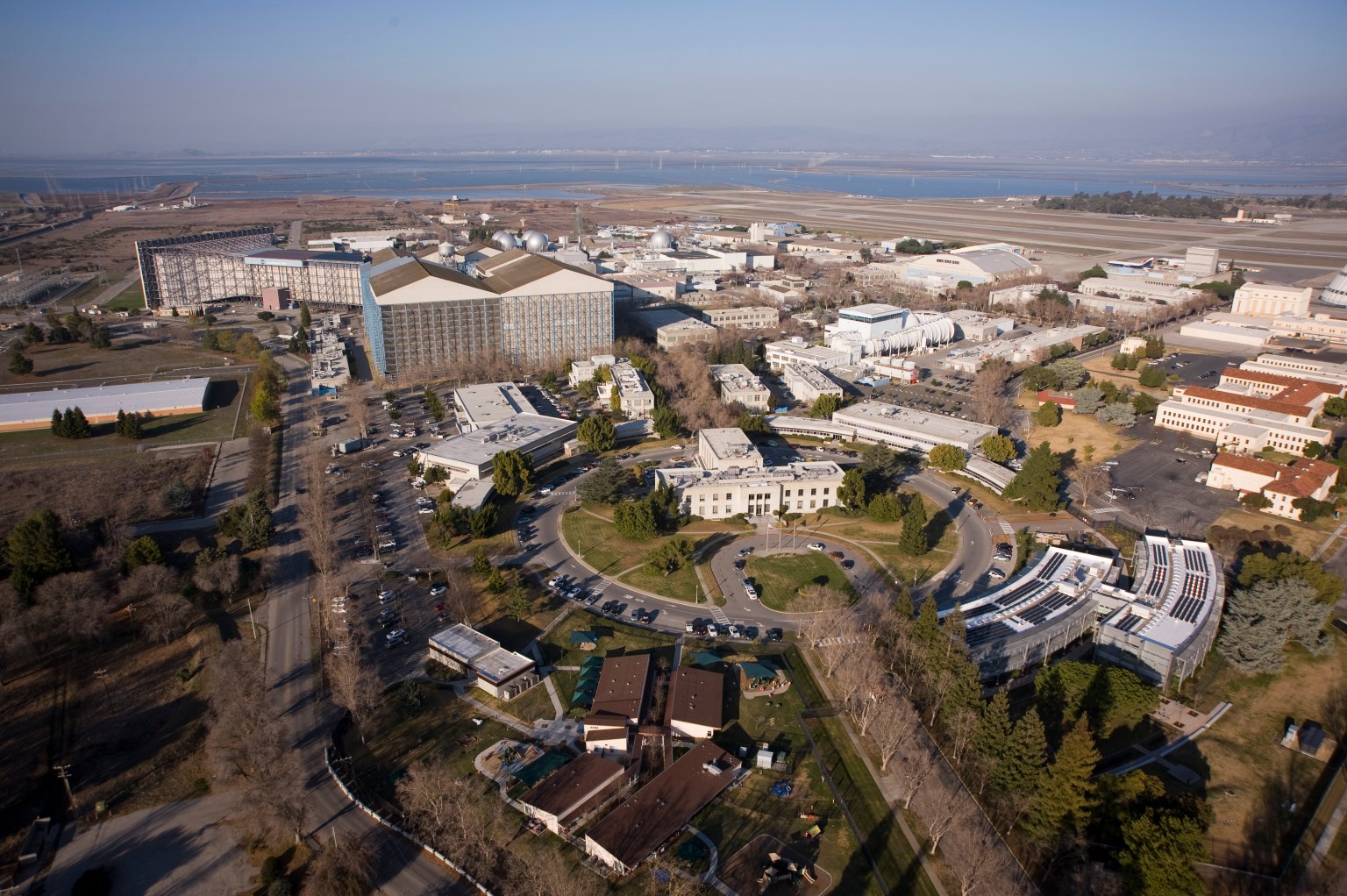Daniel Andrews and Anthony Colaprete: LCROSS @ 10
In 2009, a small mission with big shoes to fill was sent to the Moon following the detection of hydrogen at the Moon’s poles in the late 1990s. In the span of just two years, NASA Ames developed the innovative Lunar Crater Observation and Sensing Satellite (LCROSS) mission to answer the game-changing question: could there be water molecules on the Moon? Not only did LCROSS deliver the science, its legacy opened up a path to harvesting resources at the Moon – a cornerstone of today’s NASA’s Artemis program.
Abstract:
Ten years ago, on Oct. 9, 2009, the Lunar Crater Observation and Sensing Satellite (LCROSS) intentionally impacted the South Pole of the Moon to confirm if water-ice was present there. LCROSS was an ambitious mission and an ambitious project, simultaneously rewriting the books about the Moon, as well as rewriting how missions could be executed within NASA. LCROSS proved to be disruptive on both fronts.
Come hear from the LCROSS project manager and the project scientist about that mission, ten years later. You will learn about the discoveries that came from this mission, as well as sharing some history, anecdotes and close calls from a “little engine that could” Ames team. Finally, you will hear how the important findings from this mission and other missions now underpin the Agency’s Artemis program to create a sustainable human presence at the Moon – with some hints at essential next steps Ames is leading for the Agency.
Biographies:
Daniel Andrews is the Director of Engineering at NASA’s Ames Research Center, and the Project Manager for the ground-truthing LCROSS mission, which confirmed the presence of billions of gallons of water-ice on the South Pole of the Moon. Known at NASA for leading capabilities-driven, cost-effective missions, Dan received his bachelor’s degree in electrical engineering from San Jose State University and his master’s degree in mechanical engineering from Stanford University. He started his career at NASA’s Ames Research Center working diverse robotic technology demonstration projects, including an Exobiology Robotic Table, a Serpentine Robot, an Autonomous Rotorcraft, and the Personal Satellite Assistant (PSA) Project – a free-flying robot astronaut assistant, garnering the attention of Newsweek, Popular Science, and Air & Space Magazine, and was named one of the “50 Best Robots Ever” in Wired Magazine. Dan has received numerous NASA awards including the Outstanding Leadership and Exceptional Achievement Medals and several Group Achievement awards. His teams have received a number of industry awards such as Popular Mechanics’ Breakthrough Award, the Space Foundation’s “John L. ‘Jack’ Swigert Jr. Award for Space Exploration”, and the National Space Society’s Space Pioneer Award.
Anthony Colaprete is a planetary scientist at NASA’s Ames Research Center, where he works on developing a range of flight instruments for various platforms and conducts basic research on planetary atmospheres and volatiles. After receiving his Ph.D. in Atmospheric, Planetary and Astrophysical Science from the University of Colorado, Dr. Colaprete was hired by NASA Ames to work as a postdoctoral researcher with the NASA Ames Mars General Circulation Modeling group. Since then Dr. Colaprete has led or participated in several flight projects. He has served as the principal investigator and payload manager for the Lunar Crater Observation and Sensing Satellite (LCROSS) mission, and the principal investigator and instrument manager for the Lunar Atmosphere and Dust Environment Explorer (LADEE) Ultraviolet-Visible Spectrometer (UVS) instrument. Currently Dr. Colaprete is the principal investigator for the Near Infrared Volatile Spectrometer Subsystem (NIRVSS) instrument, one of thirteen recently selected CLPS instruments for flight on commercial lunar landers. Dr. Colaprete is also a co-investigator on the LunaH-Map Artemis I CubeSat mission and the Mastcam-Z Mars 2020 instrument, and the Project Scientist for the Volatiles Investigating Polar Exploration Rover (VIPER). Among many recognitions, Dr. Colaprete was the recipient of NASA’s 2016 H. Julian Allen award for his leadership on the scientific discoveries by the LCROSS mission.



